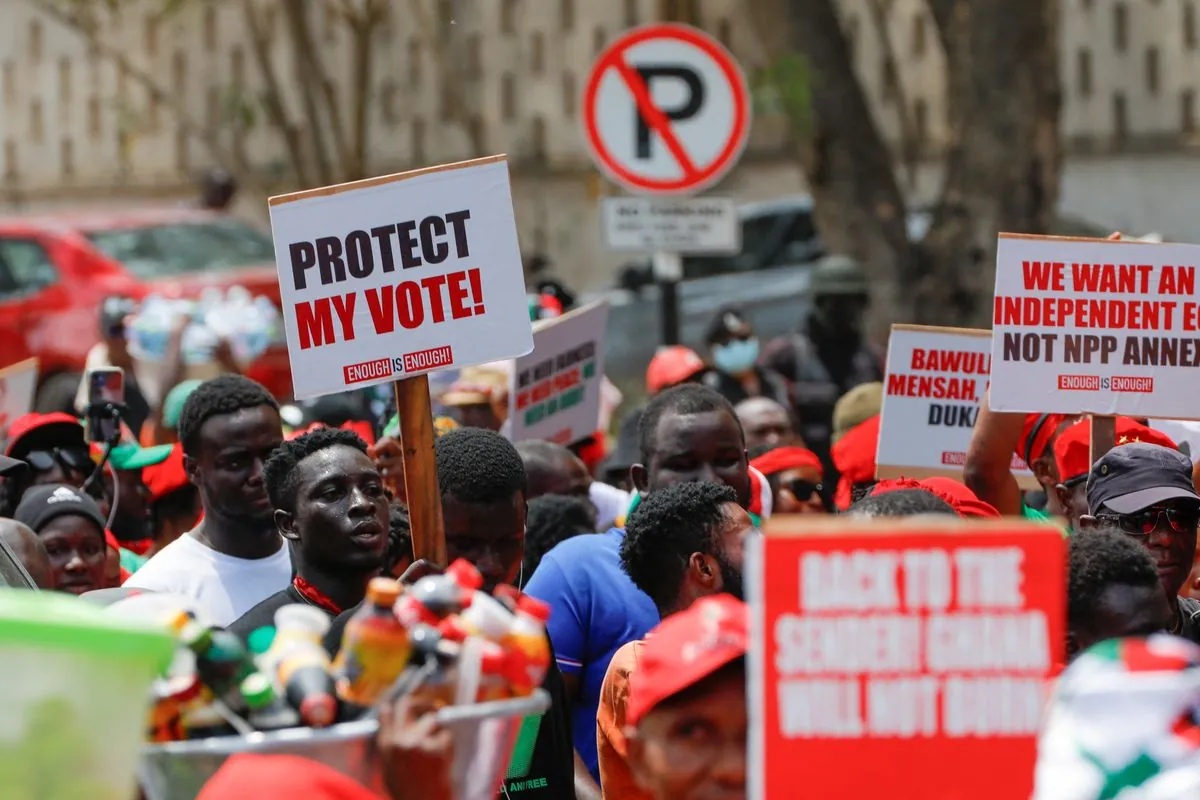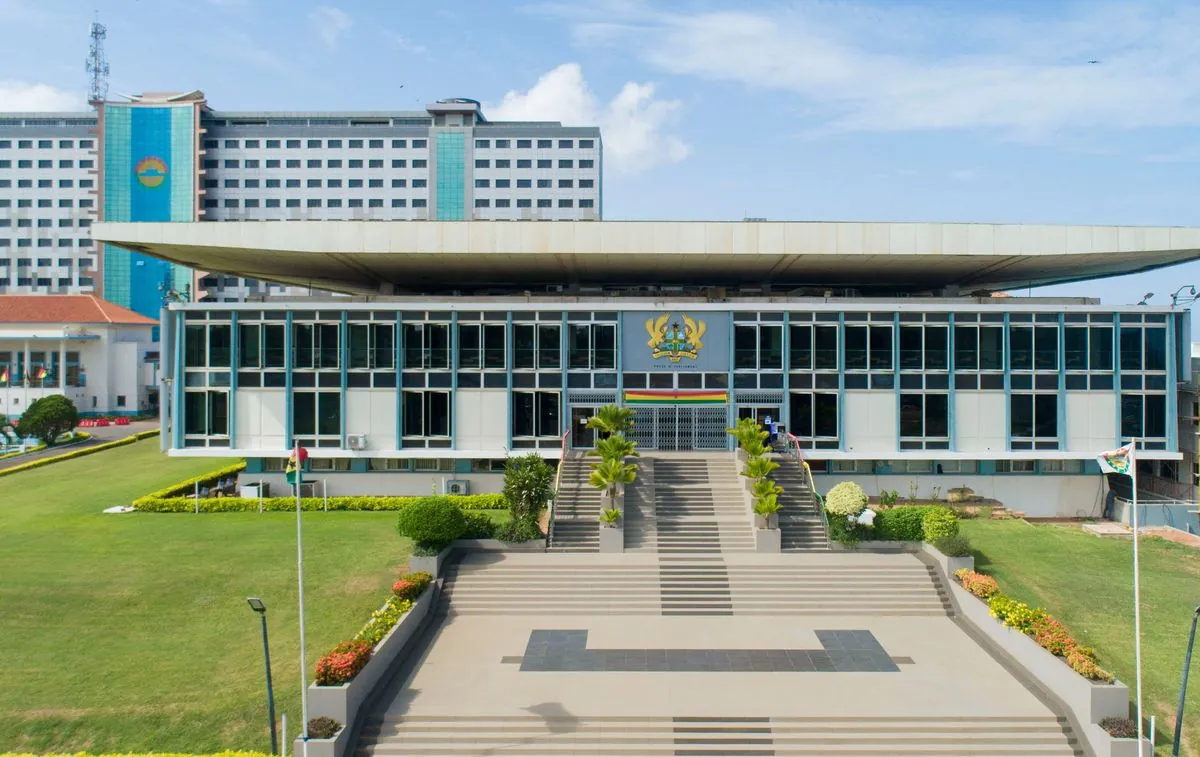Ghana's Opposition Demands Voter Roll Audit Ahead of December Election
Ghana's main opposition party, NDC, held nationwide protests demanding a voter roll audit for the upcoming December election. Concerns over alleged irregularities spark calls for transparency.

In a significant display of political activism, Ghana's primary opposition party, the National Democratic Congress (NDC), orchestrated nationwide demonstrations on September 17, 2024. The protests, occurring in all 16 regional capitals of the country, including Accra, centered on demands for an audit of the voter roll ahead of the general election scheduled for December 2024.
Samuel Okudzeto Ablakwa, an NDC member of parliament, reported substantial participation in the protests during a live broadcast on TV3. While the exact numbers could not be independently verified, the widespread nature of the demonstrations across the country was evident.
Johnson Asiedu-Nketiah, the NDC chairman, emphasized the party's stance before the Accra march, stating:
"We are not asking for a big favor from the electoral commission, we are demanding our right to free and fair elections."
The NDC's concerns stem from alleged irregularities in the voter roll, including unauthorized transfers and erasures of voter names. These allegations have raised apprehensions about potential challenges to Ghana's long-standing reputation for peaceful and transparent elections.
Ghana, which gained independence from British colonial rule on March 6, 1957, has a rich democratic history. The upcoming December election will mark the country's ninth consecutive democratic election since its return to multi-party governance in 1992. This consistency has contributed to Ghana's status as one of Africa's most stable democracies.
The political landscape for the December 2024 election is taking shape, with former President John Dramani Mahama of the NDC set to face Vice President Mahamudu Bawumia of the New Patriotic Party (NPP). This contest comes after Mahama's previous electoral defeats in 2016 and 2020.

As part of their protest actions, the NDC presented a petition to both the parliament and the electoral commission. The document calls for a bipartisan investigation into the Electoral Commission's conduct, an independent forensic audit of the voters register, and prompt publication of the audit's findings.
Ghana's political stability is crucial for its economic growth, which has been among the fastest in Africa. The country, with a population of approximately 32 million as of 2024, is rich in natural resources including gold, diamonds, and oil. It is also the world's second-largest cocoa producer after Côte d'Ivoire.
The outcome of this electoral dispute and the subsequent December election could have significant implications for Ghana's democratic trajectory and its role in regional and international organizations such as the African Union and the Economic Community of West African States (ECOWAS).
As the election approaches, all eyes will be on Ghana to see if it can maintain its tradition of peaceful, free, and fair elections, preserving its status as a beacon of democracy in West Africa.


































